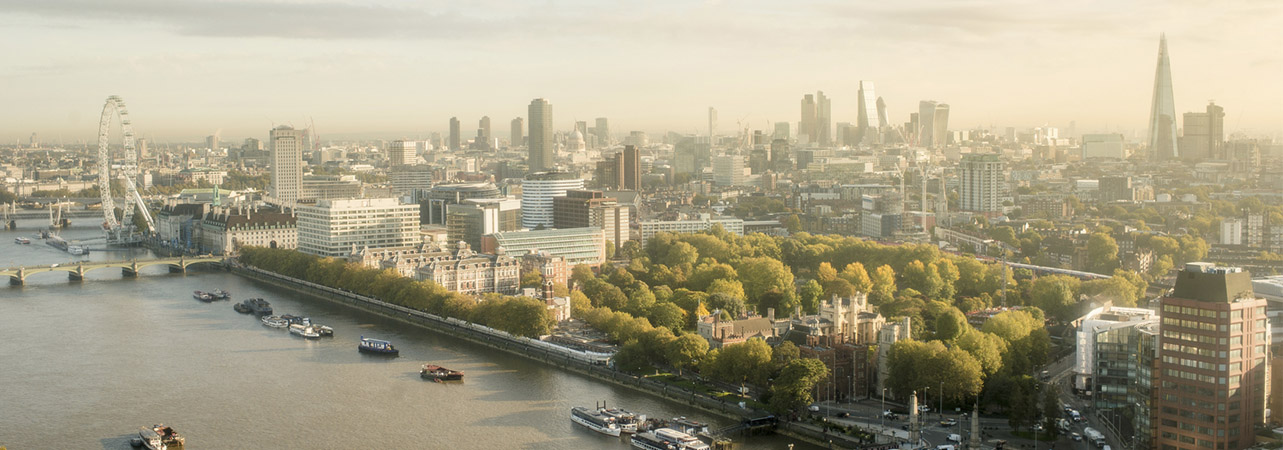Hot on the heels of the Bank of England’s emergency rate cut, Chancellor of the Exchequer Rishi Sunak delivered his first Budget since his appointment in February 2020. Described by the OBR as “the largest sustained fiscal loosening” since 1992, it was heavy on spending and borrowing, with an emphasis on addressing the economic impact of the coronavirus.
- A package of measures worth £30bn to help tackle the impact of the coronavirus
- £6bn increase to NHS spending
- Borrowing set to rise
Hot on the heels of the Bank of England’s emergency rate cut, Chancellor of the Exchequer Rishi Sunak delivered his first Budget since his appointment in February 2020. Described by the Office for Budget Responsibility (OBR) as “the largest sustained fiscal loosening” since 1992, it was heavy on spending and borrowing, with an emphasis on addressing the economic impact of the coronavirus.
“The largest sustained fiscal loosening” since 1992 (OBR)
Addressing coronavirus
The Chancellor revealed a package of measures worth £30 billion to help mitigate the impact of the coronavirus on businesses and individuals. These measures include an emergency response fund worth £5 billion to support the NHS and other public services, and £7 billion for individuals and businesses affected by the virus.
Statutory sick pay will be paid to all those who have been advised to self-isolate, even if they do not show any symptoms. A £500 million hardship fund will be available for local authorities to help vulnerable people. Self-employed workers and those in the “gig” economy, who are not eligible for statutory sick pay, will be able to claim contributory Employment Support Allowance (ESA). Moreover, for those on ESA, statutory sick pay will be available from day one, instead of day eight.
Small businesses with fewer than 250 employees will be able to reclaim up to 14 days’ worth of sick pay from the Government for employees’ coronavirus-related absences. Small and medium-sized companies will have access to a “Business Interruption Loan Scheme” offering loans of up to £1.2 million. Business rates for firms in the retail, leisure and hospitality sectors with a rateable value of less than £51,000 will be suspended for a year, and any business that is eligible for small business rates relief will be receive a cash grant of £3,000.
“Whatever it needs, whatever it costs”
The Chancellor increased spending on the NHS by £6 billion over the current Parliament. He also raised the immigration health surcharge to £620, with a discounted rate for children.
Updated economic forecasts
The OBR cut its forecast for economic growth this year from 1.4% to 1.1%. UK growth is predicted to strengthen to 1.8% in 2021-22, before easing 1.5% in 2022-23, 1.3% in 2023-24, and 1.4% in 2024-25. These forecasts do not, however, factor in the full impact of the coronavirus.
Borrowing set to rise
Borrowing as a percentage of GDP is predicted to be 2.1% this year, rising to 2.4% in 2020-21 and to 2.8% in 2021-22, before falling to 2.5% in 2022-23, 2.4% in 2023-24, and 2.2% in 2024-25. Debt as a percentage of GDP is predicted to decline from 79.5% this year to 75.2% by 2024-25.
Shades of green
The Chancellor increased taxes on pollution and pledged £300 million to tackle pollution in towns and cities. The Climate Change Levy will be frozen on electricity from April 2022, while the levy on gas will be raised. Tax relief on “red diesel” will be scrapped for most sectors, but will remain in place for farmers. £1 billion was earmarked for “green” transport solutions, including £500 million to increase the number and availability of charging hubs for electric vehicles.
Elsewhere, £120 million will be made immediately available to repair recent flood damage and defences. A further £200 million will be provided to local communities to build flood resilience in areas that have flooded repeatedly. Investment in flood defences will be doubled to £5.2 billion over the next six years.
£600 billion for infrastructure
The Government intends to spend over £600 billion on infrastructure – including £27 billion on roads, £2.5 billion on pothole repairs, and £5 billion on broadband. The Affordable Homes Project will be extended and interest rates on social housing loans will be cut. A Building Safety Fund worth £1 billion will be introduced to finance the removal of unsafe cladding from high-rise buildings, and £650 million will be invested into helping rough sleepers into permanent accommodation. Meanwhile, a new stamp duty surcharge of 2% will be introduced from April 2021 for non-UK buyers of UK properties.
The fuel freeze continues
The Chancellor decided not to end the longstanding freeze on fuel duty, and duty on spirits, beer, wine and cider were also frozen. In other measures, corporation tax rate will remain at 19%, and lifetime limit on Entrepreneurs’ Relief was reduced from £10 million to £1 million.
Threshold raised for NICs
As expected, the tax threshold for National Insurance Contributions (NICs) was increased from £8,632 to £9,500 in a move that is expected to save the average employee £104. The Chancellor also raised the tapered annual threshold for pension tax relief by £90,000 to £200,000, and cut the minimum annual allowance from £10,000 to £4,000.
Mixed reaction
The Confederation of British Industry (CBI) described the Budget as “bold” and “impressive”, welcoming its focus on innovation and infrastructure. However, the British Retail Consortium (BRC) criticised the lack of relief for larger retailers and called for the “burden” on all retailers to be reduced. The British Chambers of Commerce (BCC) welcomed the short-term business rates relief, but urged the Government to reduce high upfront costs across the board in the longer term.









